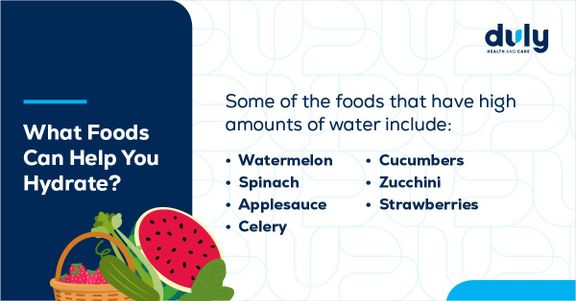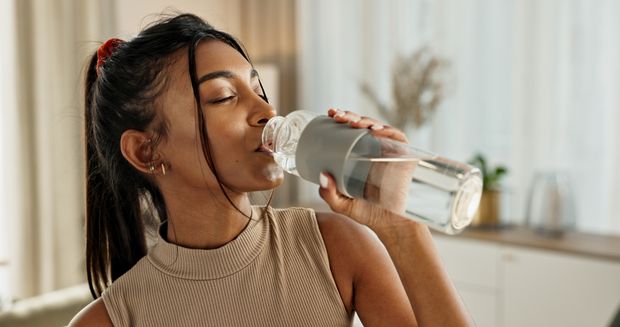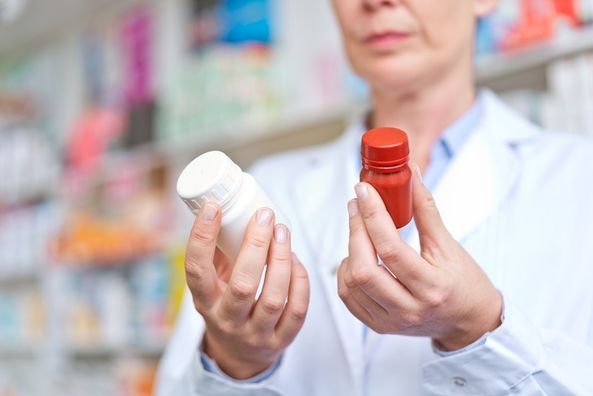One year, it was an MP3 player. Another year, it was $100 earbuds. This year, the accessory you can’t be seen without is a top-of-the-line oversized stainless steel cup. This particular craze may come with some health benefits — according to customers, they’re staying hydrated more than ever before.
With this new trend, it’s a great time to visit the benefits of drinking water. Here are 5 things to know about drinking H2O and how it affects your body:
1. You might not need 8 glasses a day.
How much water do you need? The answer is, well, a little watery. Many people have heard the “rule” that they should drink eight 8‑ounce glasses of water per day, but that’s actually an old myth that has been debunked.
For some people, 8 glasses is a reasonable and achievable goal. However, everyone is different, and so are everyone’s needs.
People who are in overall good health can typically get by on 4 to 6 cups a day. Your individual water needs depend on several different factors, such as:
- How much physical activity you get
- Outside temperature
- Age
- Other health conditions
- Weight
- If you’re pregnant or breastfeeding
There isn’t necessarily a way to calculate how much water you need, but it’s important to at least get enough that you don’t get dehydrated. If you become severely dehydrated, your body can’t function normally. Know the warning signs — dark urine, low blood pressure, dizziness, weakness, and confusion — and drink more water right away if they occur.
Also read: Wake-Up Your Metabolism
2. If you don’t love plain water, you’re in luck.
Drinking water might be the most straightforward way of getting in your water in, but it’s not the only way. Other beverages, like herbal tea, milk, and juice, can count toward your daily water intake.
And it’s not just drinks — there are plenty of foods that are high in water content and can keep you hydrated.

Just be careful about how much sugar you’re consuming. While sports drinks and juices can be hydrating, they can also be filled with sugar and high in calories.
To learn more about healthy eating habits like drinking more water, schedule an appointment with a Duly Health and Care primary care provider.
3. The myths about water being bad for digestion are just that — myths.
In the past few years, a myth has been circulating (much thanks to a 2020 Instagram post) that drinking water while eating prevents you from absorbing nutrients, causes bloating, and increases your risk of fat building up in your body.
These claims have been debunked by the experts who reiterate what they’ve known for years: Water is critical for digestion. Your body relies on the water that you drink during or after a meal to break down and process food. Drinking water during a meal can also prevent bloating and, if sipped slowly, can help people avoid overeating.
Also read: Small Changes for Healthy Eating
4. More water can mean less joint pain.
Water helps your body make synovial fluid, which is a layer of liquid that cushions your joints, lowering friction when you move them. Water also makes up about 65 to 80% of your cartilage, which is tissue that covers the ends of your bones. Cartilage reduces friction when you move, and helps your bones glide over one another without rubbing against each other.
If you have a problem like arthritis that causes joint pain, your body relies on synovial fluid and cartilage to act as a cushion and keep aches and pains at bay. And if you don’t stay hydrated, you might not make enough synovial fluid or have cartilage that functions as it should.
5. Your heart will thank you for drinking water.
Your heart pumps about 2,000 gallons of blood every day. It does the most physical work of any organ in your body, which means it needs to be as strong as possible. Water makes it easier for your heart to pump blood throughout your body and improves your muscles’ efficiency. With enough water, your heart’s job is easier. On the other hand, not getting enough water can lead to heart problems such as dangerously low or high spikes in blood pressure and an irregular heartbeat, like heart palpitations (the feeling that your heart is fluttering in your chest).Your whole body will benefit from staying hydrated, so make sure that you’re getting enough water every day — whether it’s from a giant steel cup or a good old-fashioned glass.
Health Topics:








